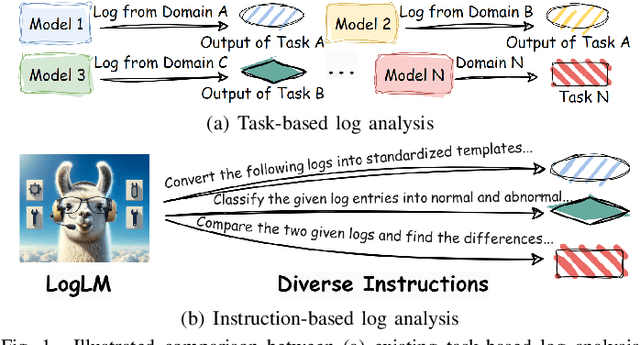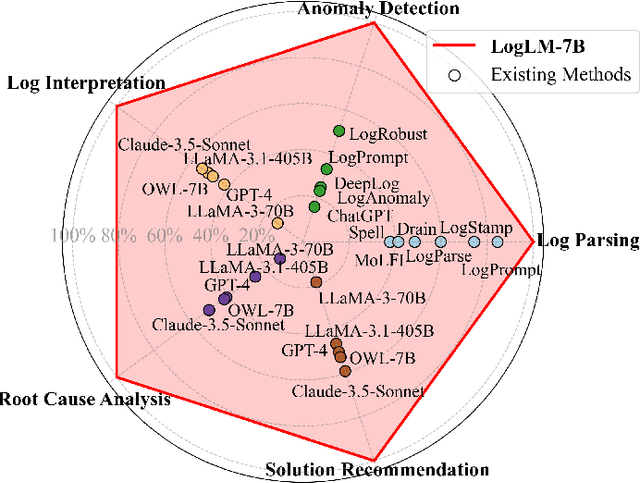Yuming Xie
Optimizing Case-Based Reasoning System for Functional Test Script Generation with Large Language Models
Mar 26, 2025Abstract:In this work, we explore the potential of large language models (LLMs) for generating functional test scripts, which necessitates understanding the dynamically evolving code structure of the target software. To achieve this, we propose a case-based reasoning (CBR) system utilizing a 4R cycle (i.e., retrieve, reuse, revise, and retain), which maintains and leverages a case bank of test intent descriptions and corresponding test scripts to facilitate LLMs for test script generation. To improve user experience further, we introduce Re4, an optimization method for the CBR system, comprising reranking-based retrieval finetuning and reinforced reuse finetuning. Specifically, we first identify positive examples with high semantic and script similarity, providing reliable pseudo-labels for finetuning the retriever model without costly labeling. Then, we apply supervised finetuning, followed by a reinforcement learning finetuning stage, to align LLMs with our production scenarios, ensuring the faithful reuse of retrieved cases. Extensive experimental results on two product development units from Huawei Datacom demonstrate the superiority of the proposed CBR+Re4. Notably, we also show that the proposed Re4 method can help alleviate the repetitive generation issues with LLMs.
Adapting Large Language Models to Log Analysis with Interpretable Domain Knowledge
Dec 02, 2024Abstract:The increasing complexity of computer systems necessitates innovative approaches to fault and error management, going beyond traditional manual log analysis. While existing solutions using large language models (LLMs) show promise, they are limited by a gap between natural and domain-specific languages, which restricts their effectiveness in real-world applications. Our approach addresses these limitations by integrating interpretable domain knowledge into open-source LLMs through continual pre-training (CPT), enhancing performance on log tasks while retaining natural language processing capabilities. We created a comprehensive dataset, NLPLog, with over 250,000 question-answer pairs to facilitate this integration. Our model, SuperLog, trained with this dataset, achieves the best performance across four log analysis tasks, surpassing the second-best model by an average of 12.01%. Our contributions include a novel CPT paradigm that significantly improves model performance, the development of SuperLog with state-of-the-art results, and the release of a large-scale dataset to support further research in this domain.
LogLM: From Task-based to Instruction-based Automated Log Analysis
Oct 12, 2024



Abstract:Automatic log analysis is essential for the efficient Operation and Maintenance (O&M) of software systems, providing critical insights into system behaviors. However, existing approaches mostly treat log analysis as training a model to perform an isolated task, using task-specific log-label pairs. These task-based approaches are inflexible in generalizing to complex scenarios, depend on task-specific training data, and cost significantly when deploying multiple models. In this paper, we propose an instruction-based training approach that transforms log-label pairs from multiple tasks and domains into a unified format of instruction-response pairs. Our trained model, LogLM, can follow complex user instructions and generalize better across different tasks, thereby increasing flexibility and reducing the dependence on task-specific training data. By integrating major log analysis tasks into a single model, our approach also relieves model deployment burden. Experimentally, LogLM outperforms existing approaches across five log analysis capabilities, and exhibits strong generalization abilities on complex instructions and unseen tasks.
Comparative study of microgrid optimal scheduling under multi-optimization algorithm fusion
Oct 03, 2023



Abstract:As global attention on renewable and clean energy grows, the research and implementation of microgrids become paramount. This paper delves into the methodology of exploring the relationship between the operational and environmental costs of microgrids through multi-objective optimization models. By integrating various optimization algorithms like Genetic Algorithm, Simulated Annealing, Ant Colony Optimization, and Particle Swarm Optimization, we propose an integrated approach for microgrid optimization. Simulation results depict that these algorithms provide different dispatch results under economic and environmental dispatch, revealing distinct roles of diesel generators and micro gas turbines in microgrids. Overall, this study offers in-depth insights and practical guidance for microgrid design and operation.
 Add to Chrome
Add to Chrome Add to Firefox
Add to Firefox Add to Edge
Add to Edge